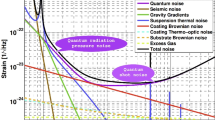Abstract
IN view of the numerous physical and astro-physical applications of the new quantum statistics it may be worth while to investigate the Joule-Thomson effect for a gas obeying Fermi-Dirac or Bose-Einstein statistics. The calculation is simple and runs on the usual lines. The results obtained are quite interesting. It is found that for a degenerate gas, degenerate in the sense of Fermi-Dirac statistics, Joule-Thomson expansion produces a heating effect, the rise in temperature for a given fall in pressure being greater, the greater the degree of degeneracy of the gas. In fact where n denotes the number of particles (each of mass m) per unit volume, p the pressure, T the temperature, g the weight factor (for electrons g = 2), k the Boltzmann constant and h is Plank's constant. A0 is called the “degeneracy discriminant” and its value gives a measure of the degree of degeneracy (or of non-degeneracy in the case of non-degenerate gas). For degeneracy A0≫1 and in non-degeneracy A0≪1.
Similar content being viewed by others
References
Saha and Srivasava, “A Treatise on Heat”, 476 (1935). We use the approximate equation in which the term is supposed small compared to unity.
Author information
Authors and Affiliations
Rights and permissions
About this article
Cite this article
KOTHARI, D., SRIVASAVA, B. Joule-Thomson Effect and Quantum Statistics. Nature 140, 970–971 (1937). https://doi.org/10.1038/140970b0
Issue Date:
DOI: https://doi.org/10.1038/140970b0
- Springer Nature Limited
This article is cited by
-
Quantum gases in optical boxes
Nature Physics (2021)





